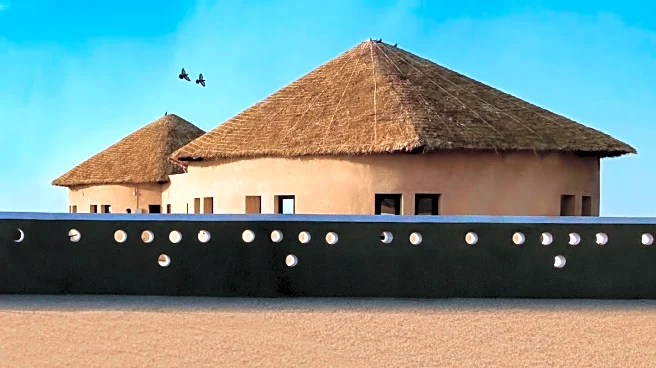What is the story about?
What's Happening?
Doctors Without Borders, in collaboration with the World Health Organization (WHO), has established an Ebola treatment center in the Bulape hospital in the Democratic Republic of Congo's Kasai province. This development comes as the region faces its first Ebola outbreak in 18 years, with 68 suspected cases and 16 confirmed deaths. The WHO has delivered 400 vaccine doses to the outbreak's epicenter using a United Nations helicopter, with plans to send an additional 1,500 doses from Kinshasa. The response efforts are challenged by limited access and funding shortfalls, exacerbated by recent U.S. funding cuts. Health workers, four of whom have been infected, are being prioritized for vaccination. The WHO and Congolese authorities are intensifying their response, but financial constraints remain a significant hurdle.
Why It's Important?
The outbreak in Congo highlights the ongoing vulnerability of remote regions to infectious diseases, particularly in areas with limited infrastructure and resources. The involvement of international organizations like Doctors Without Borders and the WHO underscores the global nature of health crises and the need for coordinated responses. The funding cuts from the United States, a key supporter in past outbreaks, could hinder the effectiveness of the response, potentially leading to a wider spread of the disease. Protecting healthcare workers is crucial to maintaining the capacity to treat affected populations and prevent further transmission. The situation serves as a reminder of the importance of sustained international support and preparedness in managing public health emergencies.
What's Next?
The WHO projects that managing the outbreak over the next three months will cost $20 million, while Congo's national response plan estimates a need for $78 million. Efforts will focus on expanding vaccination coverage, particularly among healthcare workers, and improving access to affected areas. The international community may need to step in to fill funding gaps to prevent the outbreak from escalating. Monitoring and tracing contacts of suspected cases will continue to be a priority to contain the spread. The situation will require ongoing assessment to determine if a public health emergency declaration becomes necessary.
Beyond the Headlines
The outbreak in Congo raises ethical questions about global health equity and the responsibility of wealthier nations to support vulnerable regions. The funding cuts from the U.S. highlight the potential impact of political decisions on global health initiatives. Long-term, the outbreak could prompt discussions on improving infrastructure and healthcare systems in remote areas to better prepare for future health crises. The role of international organizations in providing emergency response and support may also be scrutinized to ensure more effective and timely interventions.















